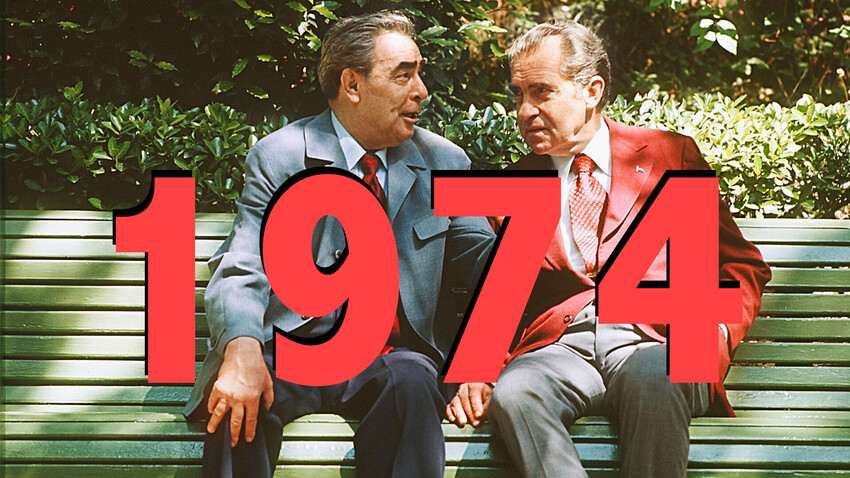
Leonid Brezhnev and Richard Nixon in Yalta, Crimea
Yury Abramochkin/SputnikLeonid Brezhnev had been running the country for 10 years by the year 1974. The years of his rule have gone down in history as 'zastoi', or literally the "era of stagnation" (however, the communists called it "developed socialism").
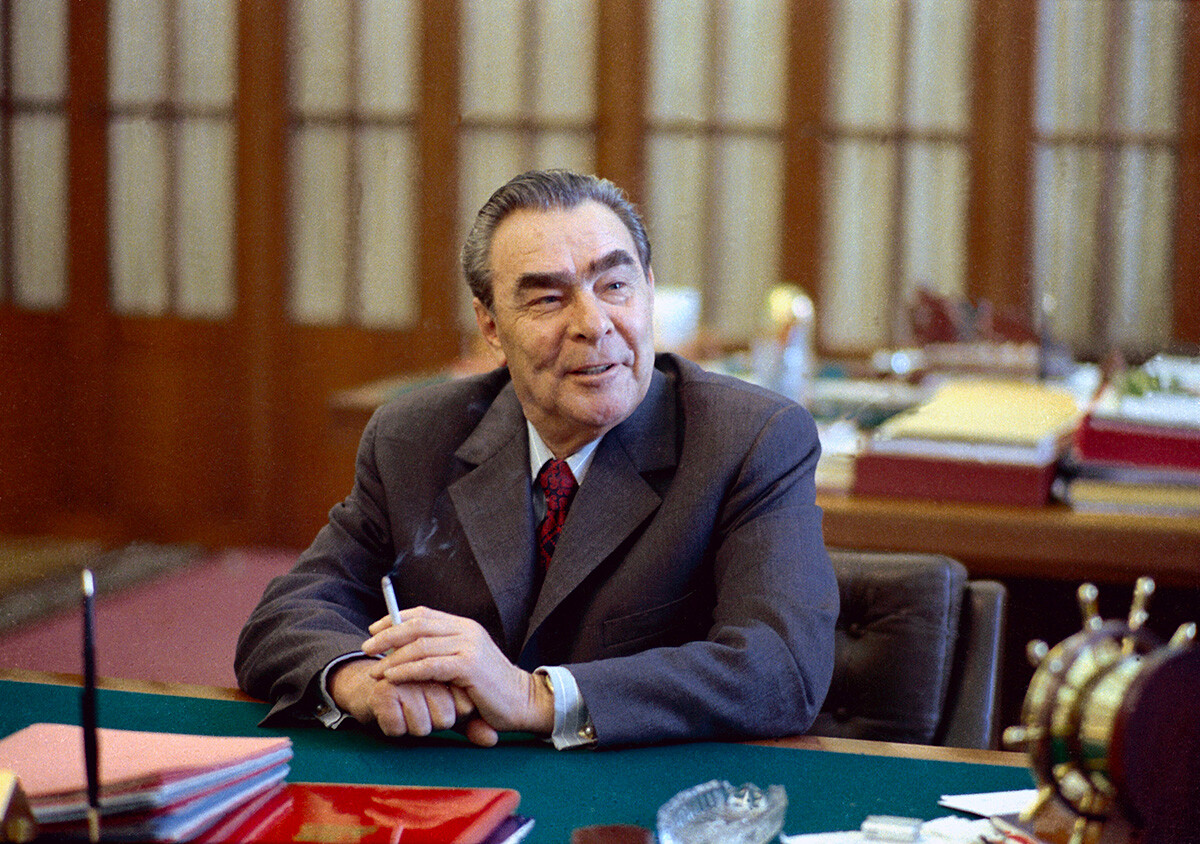
The USSR national ice hockey team is playing against Canada in Moscow.
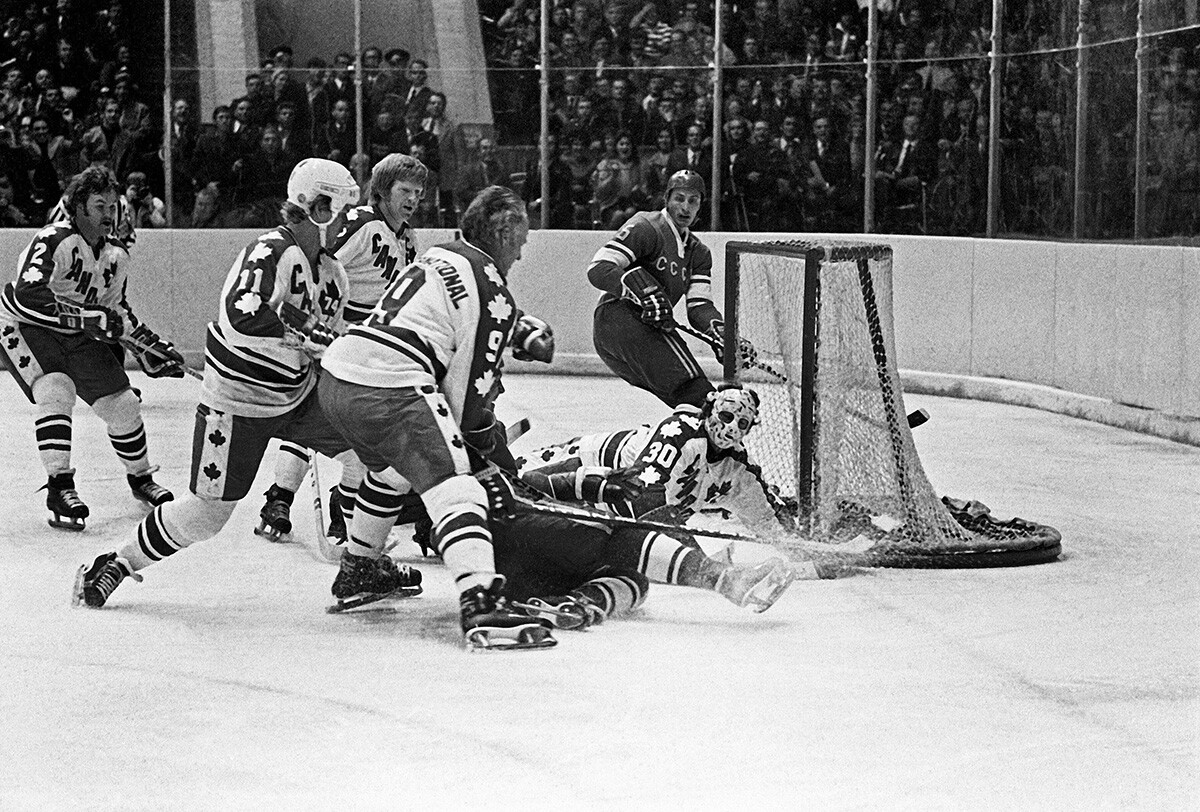
USSR national team forward Valery Kharlamov, an ice hockey legend (The movie ‘Legend No. 17’ [2013] is a biopic about him).
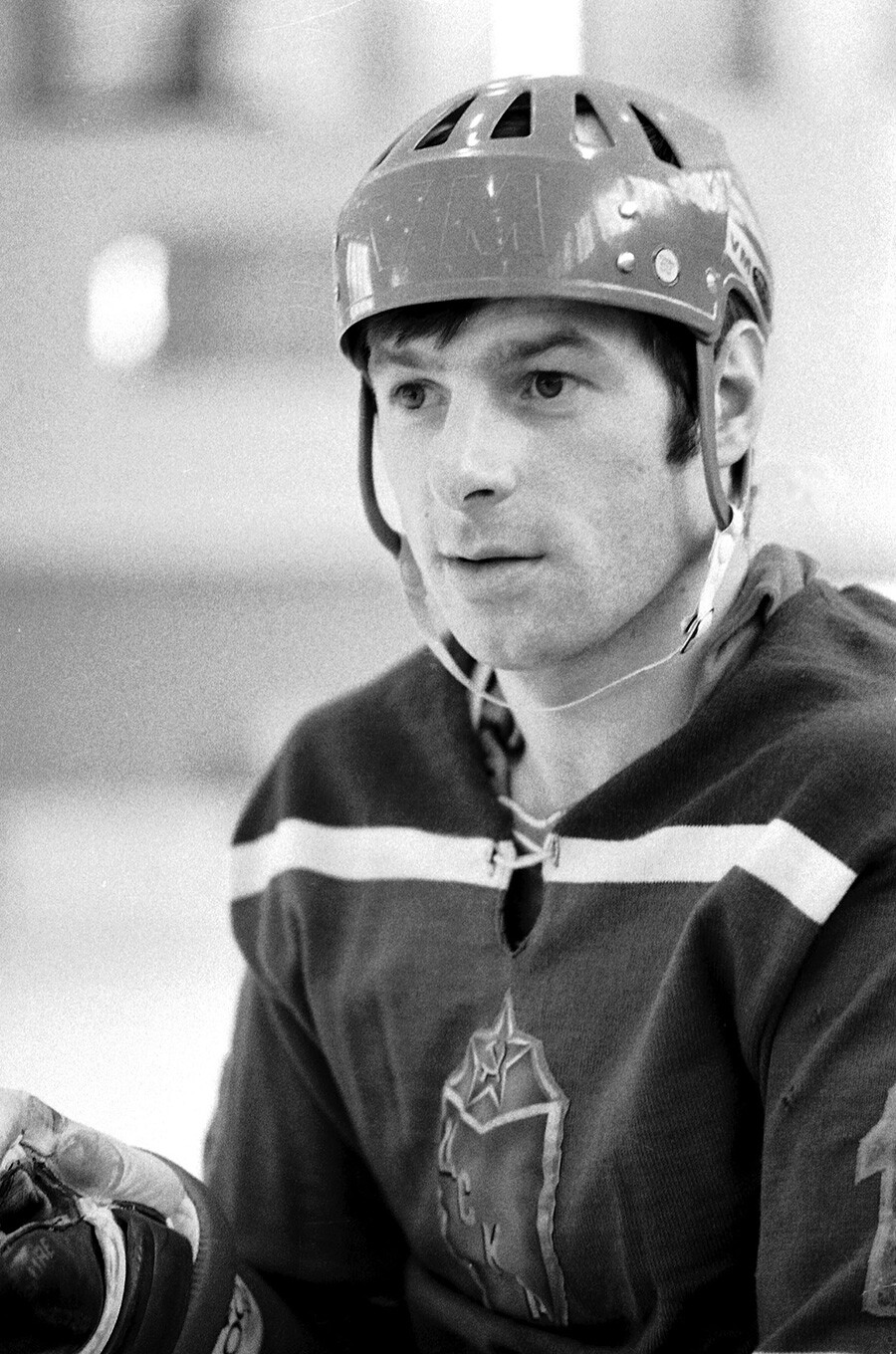
International students of the Peoples' Friendship University enjoying traditional Russian winter entertainment.

In 1974, Leonardo da Vinci's Gioconda of Louvre made its historical trip to Moscow's Pushkin State Museum of Fine Arts. This was only its second ever trip outside the Paris museum.
Andrei Tarkovsky shot his cult ‘Mirror’ movie in 1974. The photo below shows the director on set.
Chess nation: men playing in Moscow's Sokolniki Park.
In the Summer of 1974, then U.S. President Richard Nixon paid a visit to the USSR.
Together with Leonid Brezhnev, Nixon visited Moscow and then traveled to Crimea. This was not the first meeting of the leaders and all of them contributed to the warming of relations between the two superpowers. However, a month after his visit to Moscow, Nixon left office because of the Watergate scandal.
In 1974, an important milestone was the resumption of the Baikal-Amur Railway construction. The ambitious project, conceived by Stalin, had begun in the 1930s by Gulag prisoners, but was put on hold after the war.
In the 1970s, huge numbers of young volunteers went to the construction site seeking a new job and a new life.
Entire towns were built for the builders of the Baikal-Amur Railway.
Meanwhile, legendary ballet dancer Mikhail Baryshnikov would go on tour to Canada in 1974 and would not return to the USSR. But, in the picture below, he still poses for a photographer on the streets of Leningrad.
Famous American pianist Van Cliburn came to the USSR on tour. He had become world-renowned in Moscow after winning the International Tchaikovsky Competition in 1958.
The 1970s also saw the rise of unofficial art. It was then that the infamous ‘Bulldozer Exhibition’ took place in Moscow. The spontaneous exhibition of avant-garde artists was broken up by the police using water cannons and bulldozers.
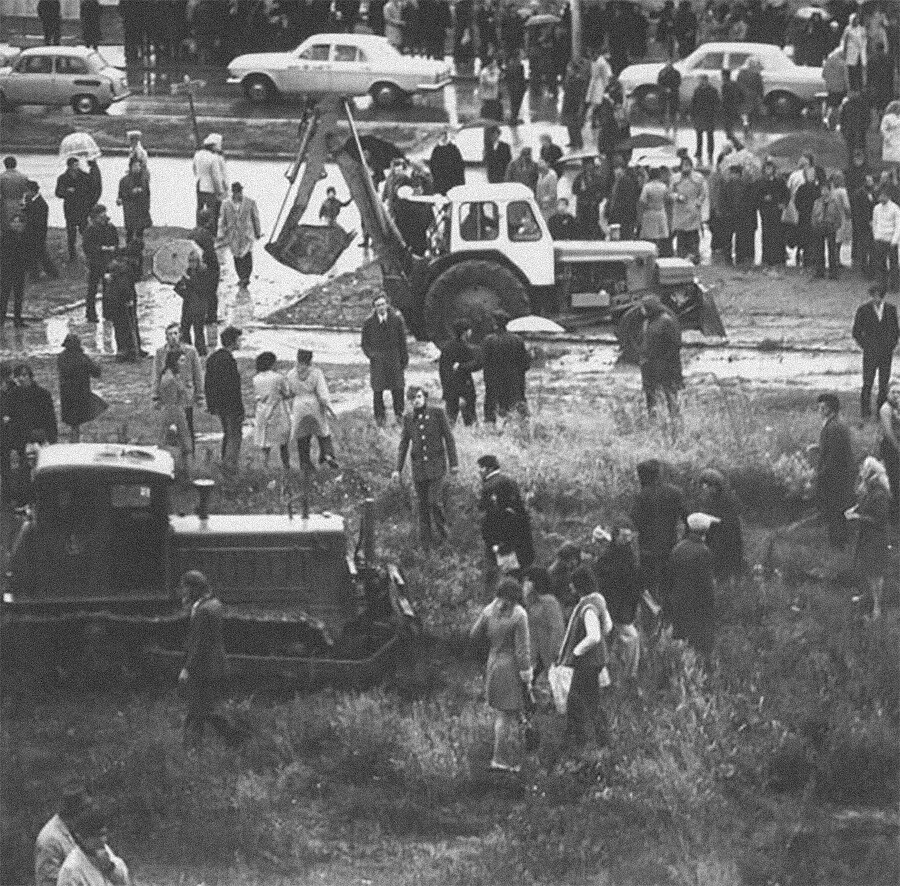
The dispersal of the exhibition caused such a public outcry that, two weeks later, authorities allowed the exhibition to be held officially in Izmailovo Park.
Artists painting the Spaso-Prilutsky Monastery on the outskirts of Vologda.

In the 1970s, even kids started to have photo cameras.
Residents of the Ural city of Perm posing in a minus 40-degree Celsius frost.
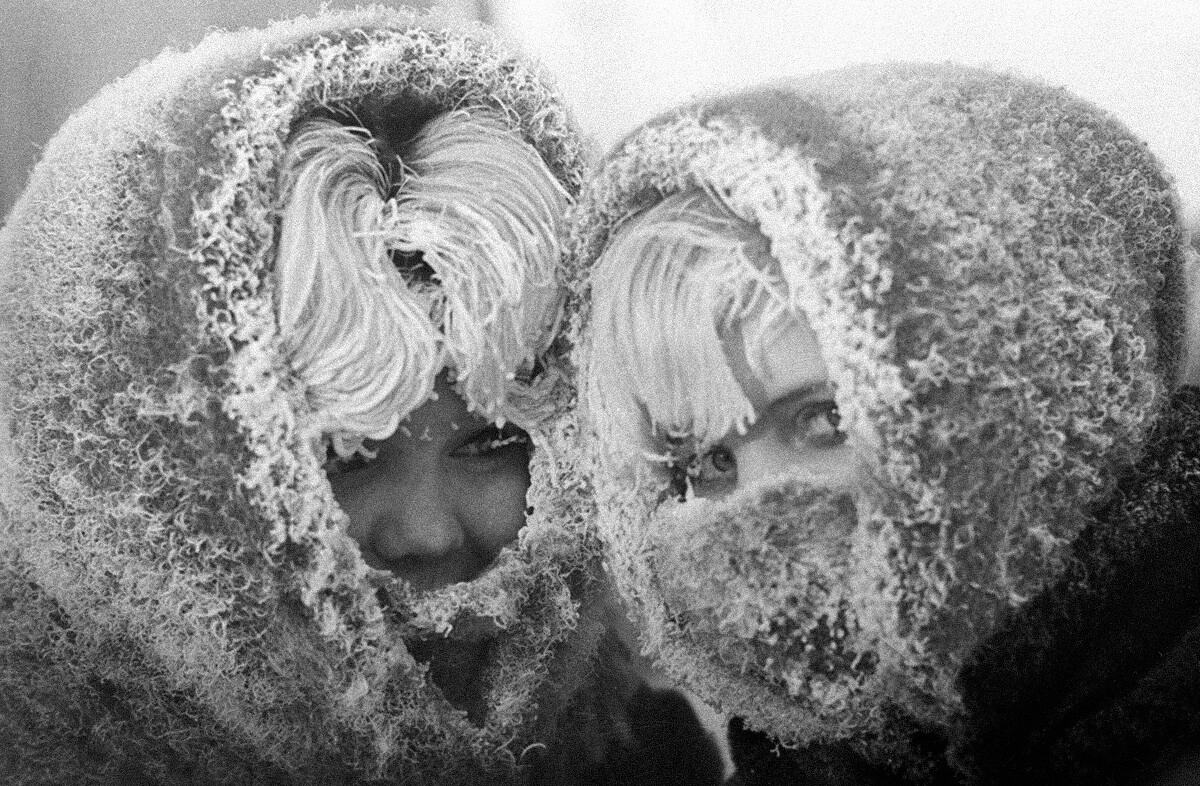
Nuclear power was actively developing in the USSR. The first nuclear power plant had been opened 10 years earlier and, by 1974, there were already more than five of them. The photo below shows the control panel of the Kola nuclear power plant, the first one built above the Arctic Circle.
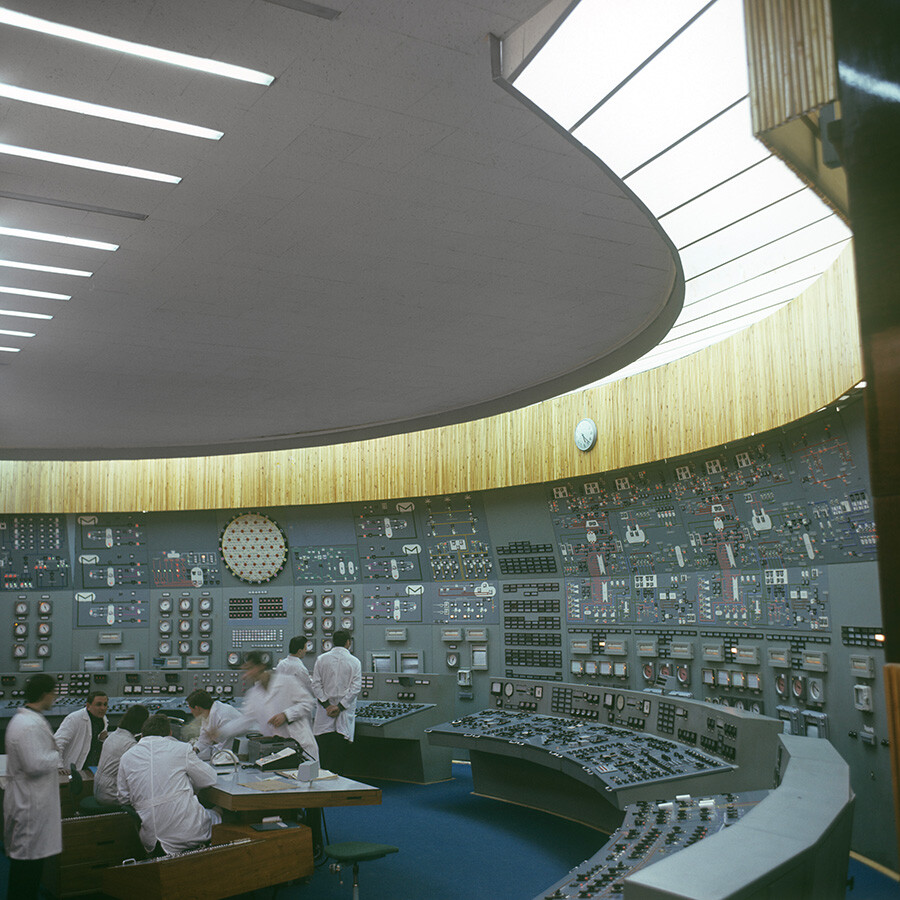
Wonders of science: conducting a radioisotope scanning of internal organs at the Research Institute of Oncology in Leningrad.
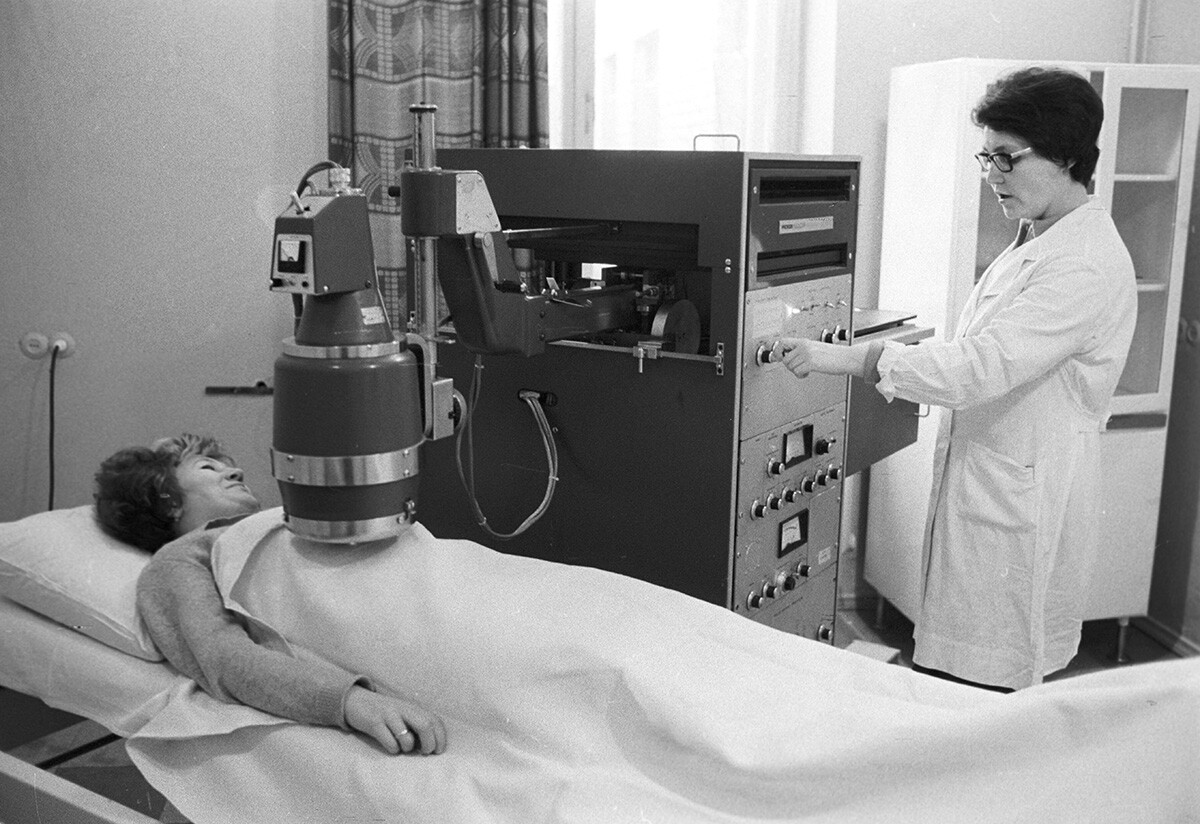
The Soviet manned spacecraft Soyuz-15 was launched into space in 1974. The photo below shows commander Gennady Sarafanov (left) and flight engineer Lev Demin before takeoff. Due to a systems malfunction, the ship was unable to dock with the orbital station and had to terminate the flight early. However, the Soyuz-15 was the first in the world to perform a night landing.

But, the next flight with the Soyuz-16 spacecraft in December 1974 was more successful. The launch was conducted in preparation for the joint Soviet-American Soyuz-Apollo project to be realized in 1975. The photo shows cosmonauts Anatoly Filipchenko (left) and Nikolai Rukavishnikov after returning to Earth.
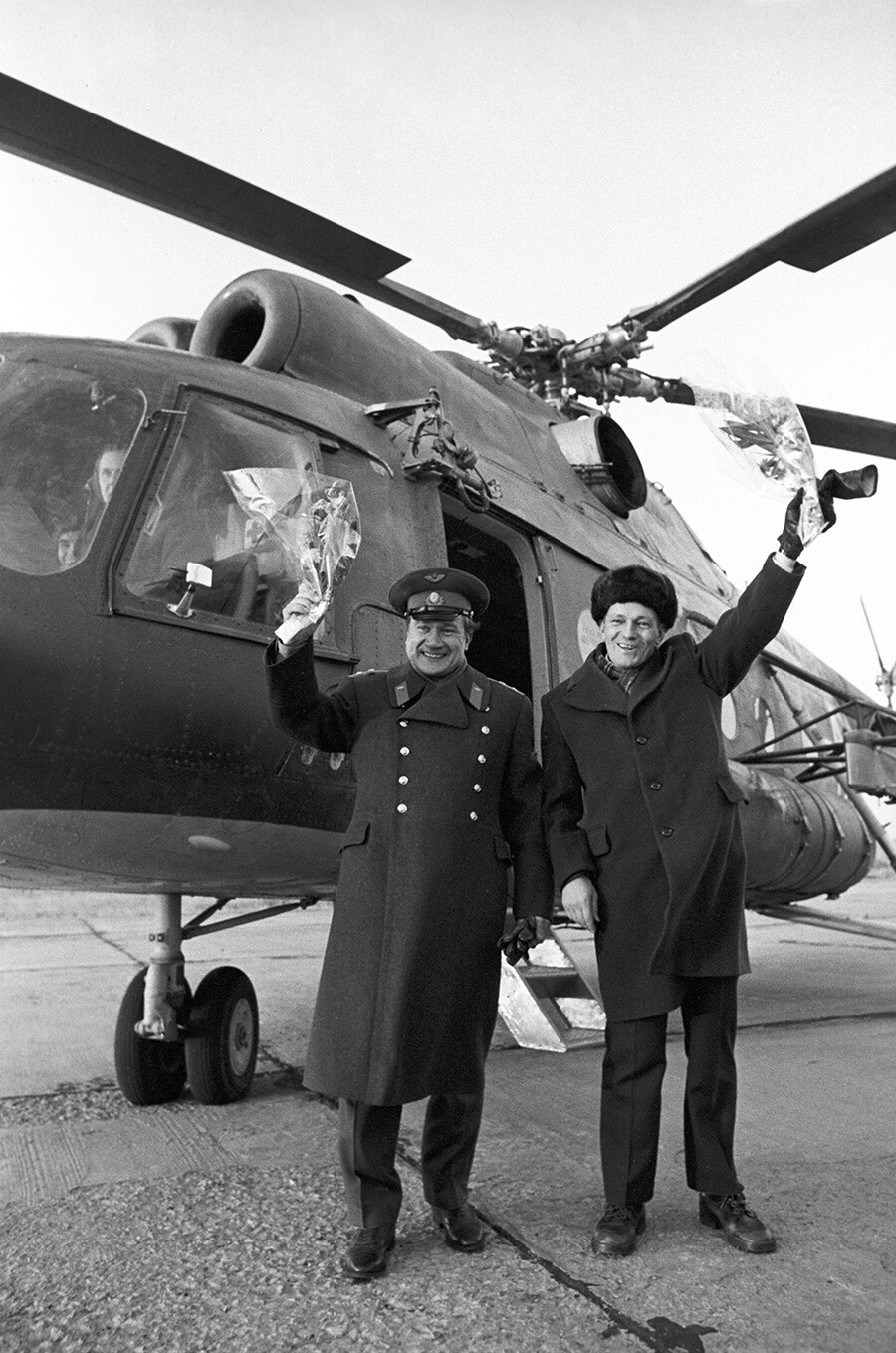
Alpine skiers lining up for a ski lift at the Dombai ski resort in the Caucasus Mountains.
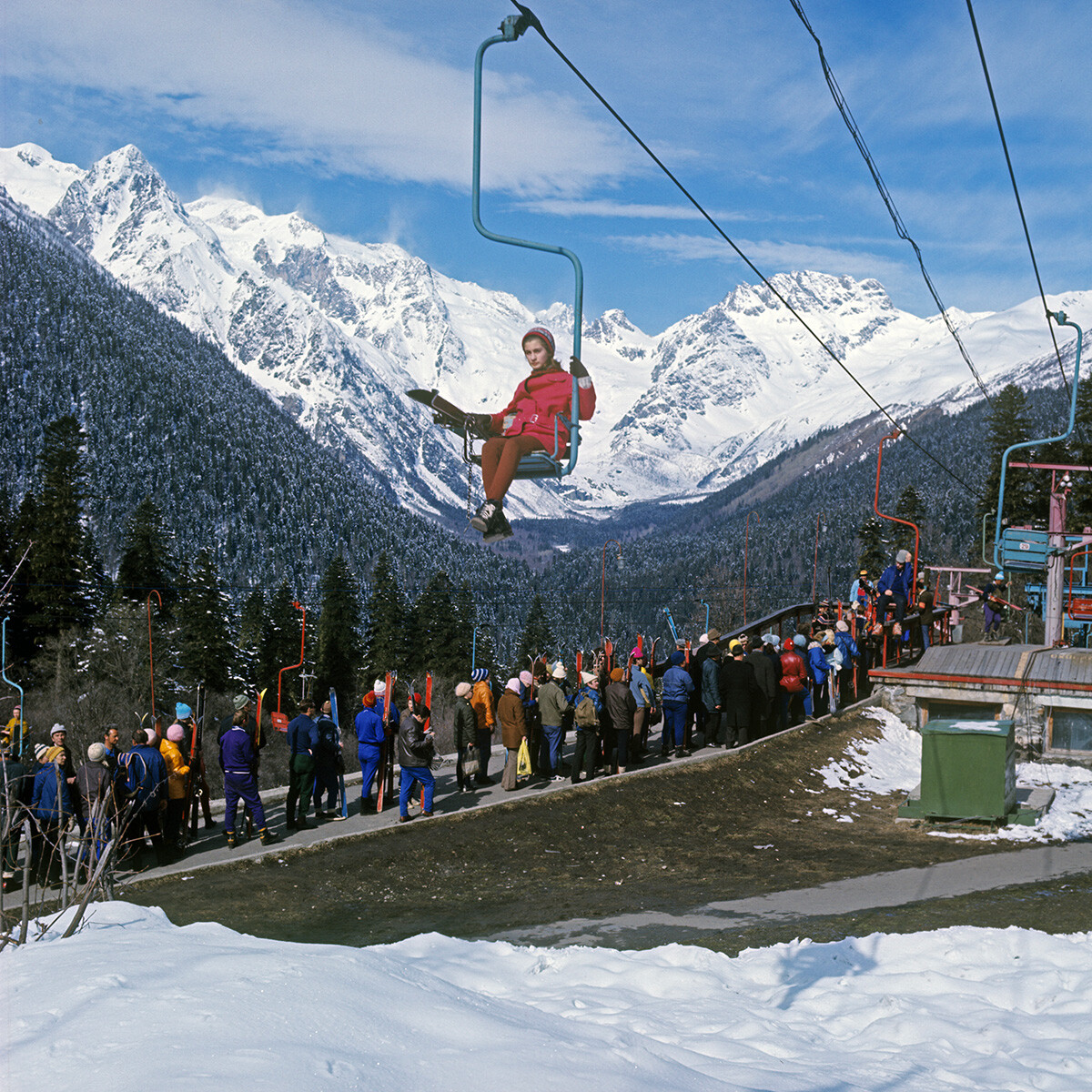
Below is how Moscow subway cars were assembled in 1974.
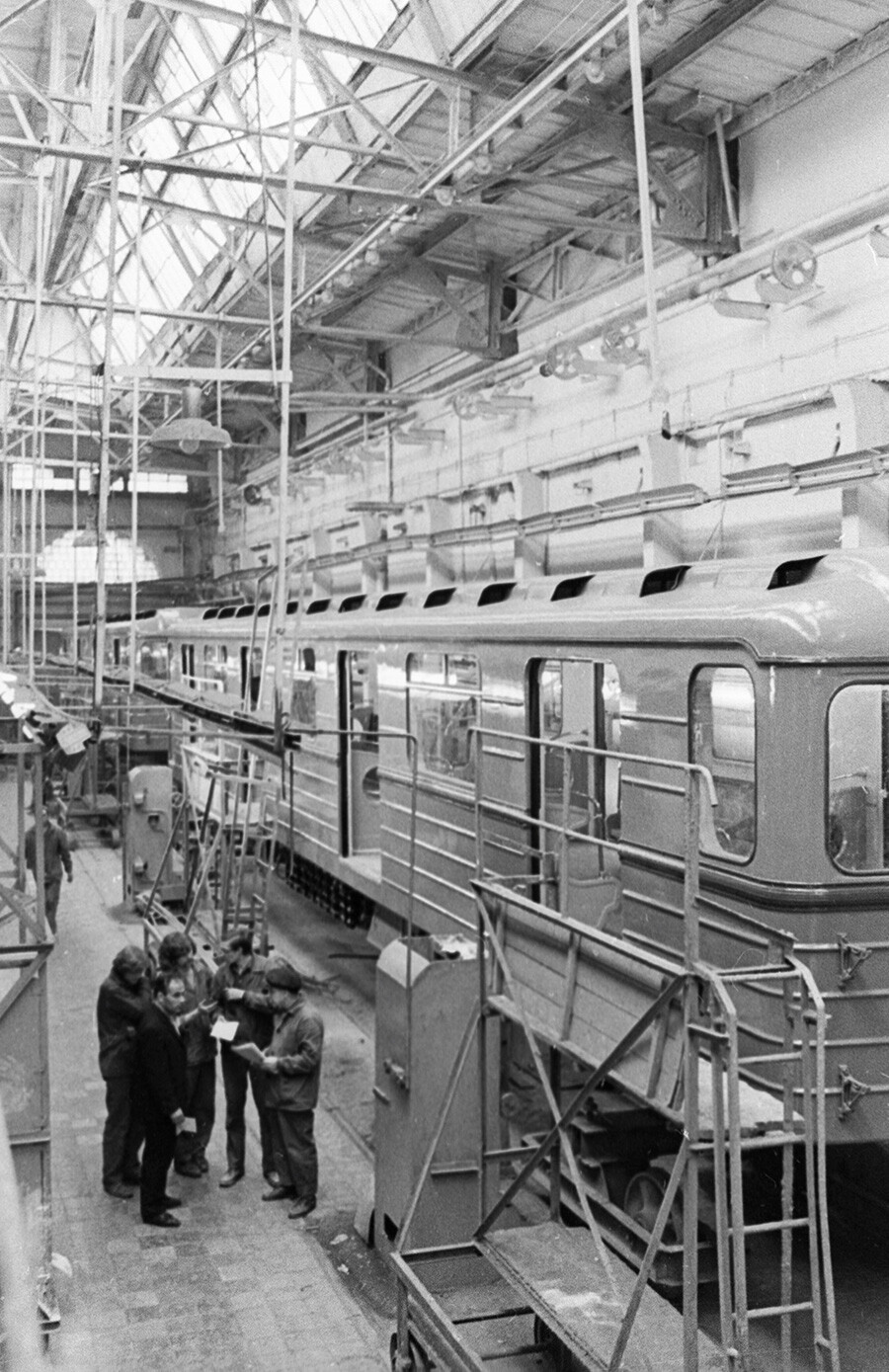
In a classroom in a Moscow school.
Moscow fashion of the 1970s. Kalininsky (now New Arbat) Prospect.
An elderly woman selling potatoes at a countryside Ural railway station.
Dear readers,
Our website and social media accounts are under threat of being restricted or banned, due to the current circumstances. So, to keep up with our latest content, simply do the following:
If using any of Russia Beyond's content, partly or in full, always provide an active hyperlink to the original material.
Subscribe
to our newsletter!
Get the week's best stories straight to your inbox